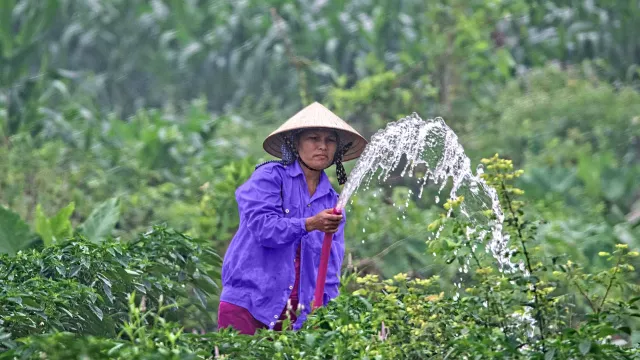According to the World Bank, financial inclusion is “a building block for both poverty reduction and opportunities for economic growth, with access to digital financial services critical for joining the new digital economy”.
Citizens excluded from financial services, notably bank accounts, find it more difficult to save, borrow, invest and even pay for additional products such as insurance. That leaves them vulnerable to the impact of the inevitable bumps in the road that every one of us faces from time to time.
And in a world where many more products and services can only be bought by digital means, whether that’s a mobile app, payment card or online, the unbanked and underserved do not have access to the same choices as those who are financially included.
Unlocking potential
The impact of financial inclusion is magnified when you look at how people earn a living, as well as how they access services and commodities. A talented individual with a great idea for a venture, but no access to a business bank account, will be limited in what they are able to achieve.
The good news is that proactive strategies to significantly increase the proportion of the population who are financially empowered are making a real difference. The World Bank itself is pushing for 100% inclusion, along with governments keen to see citizens reach their full potential in both their home and working lives, and initiatives for the public good like The Mojaloop Foundation.
Ground zero realities and last mile intervention
In developing economies across the world, the divide between the haves and the have nots manifests itself in many ways. In rural areas, farmers are largely excluded from financial inclusion that prevents them from accessing banking, insurance and government schemes. In urban areas, immigrant labourers face similar challenges and invariably get excluded from the big picture.
Intervention programs at ground level, which typically involve NGOs and volunteers are critical to bringing in change. And that’s exactly where CSR initiatives and employee volunteering groups can help bridge the gap, by focusing on vulnerable communities and empowering them with a multiplier effect.
One success story the Finastra CSR team in India shares is about their collaboration with Rang De, which helps rebuild livelihoods in rural India. The five-year long project reaches out to marginalized people in five villages, helping women to open bank accounts, understand banking opportunities and become financially self-reliant.
By the beginning of the third year of the journey, 760 women hold a new bank account, with 93 of them being able to access credit loans through government schemes. This can only have a multiplier effect on the rest of their communities and beyond.
Empowered by technology
National, regional and community banks are playing their part too, using powerful banking software platforms and new risk management technology to support individuals and small start-ups.
Instead of only considering factors such as past financial performance when lending to farmers, often working for themselves in remote places, banks can look at a wider set of data such as crop yields and weather predictions when deciding whether to lend seed capital.
We also expect to see growth in trade partnerships whereby banks lend money in return for data gathered by internet of things (IoT) sensors installed in rural locations about soil quality or other geographic information.
Not only does smart technology enable banks to be smarter about lending, it also helps SMEs expand their businesses by opening up access to international supply chains and partnerships with other bank customers.
A bright future
The confluence of multiple forces such as the adoption of digital payments, open banking and the huge push by governments across the world to empower their citizens, can only increase the number of remaining citizens who are financially included.
Over and above this, corporate citizenship and volunteering groups have a key critical role to play in the journey to complete the last mile, reaching out to less fortunate people. Financial inclusion is a key lever to alleviate poverty and ensure opportunities are accessible to everyone.
Discover more in the Redefining Finance series

